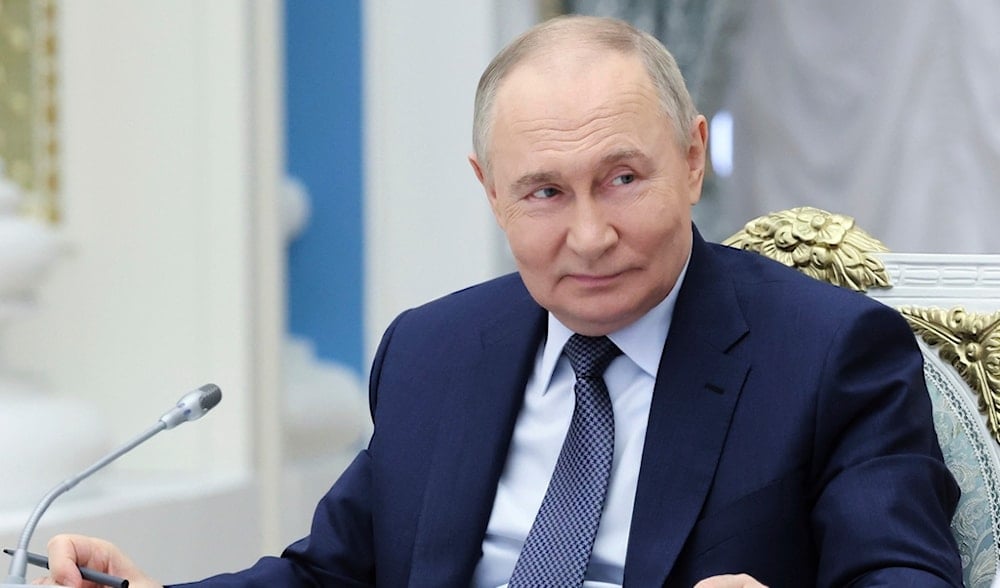Putin seeks NATO pledge, sanctions relief in Ukraine peace deal
Russian President Vladimir Putin wants a written pledge halting NATO expansion and partial sanctions relief as part of his conditions to end the war in Ukraine, Russian sources told Reuters.
-

Russian President Vladimir Putin attends a meeting of the Russia - Land of Opportunities Supervisory Board at the Kremlin in Moscow, Russia, on May 27, 2025. (AP)
Russian President Vladimir Putin is seeking a written commitment from Western powers to halt NATO’s eastward expansion and partially lift sanctions as part of his conditions to end the conflict with Ukraine, according to three Russian sources with knowledge of the negotiations cited by Reuters.
The demands include ruling out NATO membership for Ukraine, Georgia, Moldova, and other former Soviet republics, ensuring Ukrainian neutrality, lifting some Western sanctions, unfreezing Russian sovereign assets, and ensuring protection for Russian-speaking populations within Ukraine.
“Putin is ready to make peace but not at any price,” said a senior Russian source familiar with high-level Kremlin discussions, speaking on condition of anonymity.
Trump-Putin talks and strategic posturing
Putin’s position follows a two-hour phone conversation with US President Donald Trump last week, during which the two reportedly discussed a potential ceasefire framework. He signaled readiness to work with Ukraine on a memorandum establishing terms for a possible peace deal, including a timeline for halting hostilities.
However, US and European officials continue accusing Moscow of "using the guise of diplomacy" to buy time for further battlefield advances, while Trump, increasingly frustrated with Putin’s conduct, warned earlier this week that the Russian leader was "playing with fire" by rejecting immediate ceasefire talks.
Trump has also warned that Washington may impose new sanctions if Russia delays settling. On social media, he referred to Putin as having “gone absolutely CRAZY” after a major aerial attack on Ukraine.
On that note, the Kremlin reportedly believes it can sustain its military operations for years, regardless of Western sanctions or economic pressures. According to one of the Russian sources, if peace cannot be secured on Moscow’s terms, Putin is prepared to press on militarily to force a more favorable outcome later.
A second source said Putin is now more rigid on the issue of territorial concessions and insists on full control over the four eastern Ukrainian regions claimed by Russia, adding that "Putin has toughened his position."
Western response, Ukrainian rejection
Kiev has firmly rejected giving Russia any influence over its future security alignment, including NATO membership. Ukrainian officials argue that only strong security guarantees from the West can deter future confrontation with Moscow.
European capitals have also expressed concern that Russia is stalling diplomatic progress while continuing its military campaign in eastern Ukraine, and Western leaders have emphasized that any agreement must not reward aggression or undermine Ukraine’s sovereignty.
Putin and other Russian officials maintain that any viable peace deal must address what they call the “root causes” of the conflict, particularly NATO’s expansion and Western support for Ukraine’s military.
Moreover, Russia says it is currently drafting its version of the peace memorandum, but has not indicated how long the process may take.
With Ukrainian forces under pressure and diplomatic avenues narrowing, the coming weeks may prove decisive in determining whether negotiations can proceed or if the conflict is poised to intensify further.
Read more: Russia prepares Ukraine peace memo addressing war’s root causes

 3 Min Read
3 Min Read










